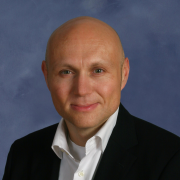A little over a month ago, life was fairly normal and Scrum.org was easing into the normal pattern of March - the rhythm of providing training, the development of new capabilities and products, and a lot of participation with forum and blog posts discussions. We were also planning our largest face 2 face trainer meeting in June and excited to welcome new team members and PSTs to the community. And then, everything changed. On March the 2nd we sent our PST community some guidance on how to prepare. But that wasn't enough. On Friday the 13th of March - I remember that day well and the irony of the date is not lost on me. It was the day that the entire team got together at Scrum.org and had our first whole team COVID-19 response meeting, we closed the office, and started with a full effort to roll out support to our team and community for COVID-19.
As a frequent conference speaker, I regularly talk about the context for agility. How the world is changing at a faster and faster rate. I often quote Thomas Friedman, and Carlota Perez on how the rate of change is going to impact society, organizations, teams, and people and I use this as a rallying cry for the use of Scrum, agility and a different operating model. But the reality of COVID-19 is far worse than any example I have cited. It is much more personal. And its impact has come about faster and on a much larger scale than anything I could have ever predicted.
Like for many of you, the last three weeks have been harder than anything I have ever experienced. It has questioned my very ability to lead, how our team works, and my relationships with our team, our community, and the broader world. Many of the skills I have relied on did not help. I felt lost and frustrated.
In practical terms, COVID-19 has had a huge impact on our 300+ trainers, their ability to teach, and our team’s ability to support them. For many in our community, this has meant a loss to their livelihoods. It also means that the thing that gets them up every day - the buzz of helping others think about approaching the world differently - was not there. Many felt the same as me - Lost, confused and frustrated.
And that is when something amazing happened.

The community rallied. It focused on practical things such as:
- How to deliver classes virtually
- Trainers sharing their previous experiences with delivering virtual sessions and helping others learn from what they have done
- Learning how to use things such as Liberating Structures and Zoom breakout rooms to enable remote teams
- They formed working teams with course stewards and the Scrum.org team to update classes to run in a virtual environment
- Discussions about how to put in place a working agreement to ensure that virtual classes did not break existing commercial relationships and the trust within the community.
Yes, there was despair and disagreement at times, but collectively those moments were brief and the community and team resolved them quickly.
They also provided a shoulder to cry on. Community members reached out to people in the hardest-hit areas such as Italy, Spain, and NYC to offer support and listen. Virtual happy hours were organized with music and BYO alcohol. Jokes were shared and birthday songs were sung. News from the 4 corners of the world was shared in a positive, constructive way. And members from countries that have been in this longer than others shared stories of hope.
The impact of COVID-19 is far from over. The world has a long way to go before we are “back to normal,” if we ever will be. Or, does this way of working become our “new normal?” Being a part of this community has provided me with a firm foundation. This foundation not only encourages me to work harder to have a global view and listen to those who are experiencing different things where they are, build new products, harvest new ideas and get ready for the future. It has also opened my eyes more widely to how important it is to provide some stability for our team, community and my family as we try and stay safe and healthy.
KUDOS to the people in the PST community and what they have taught me about humanity and a little bit about Scrum as well :-)
Stay safe - Stay healthy - And stay connected to your communities.
Dave
